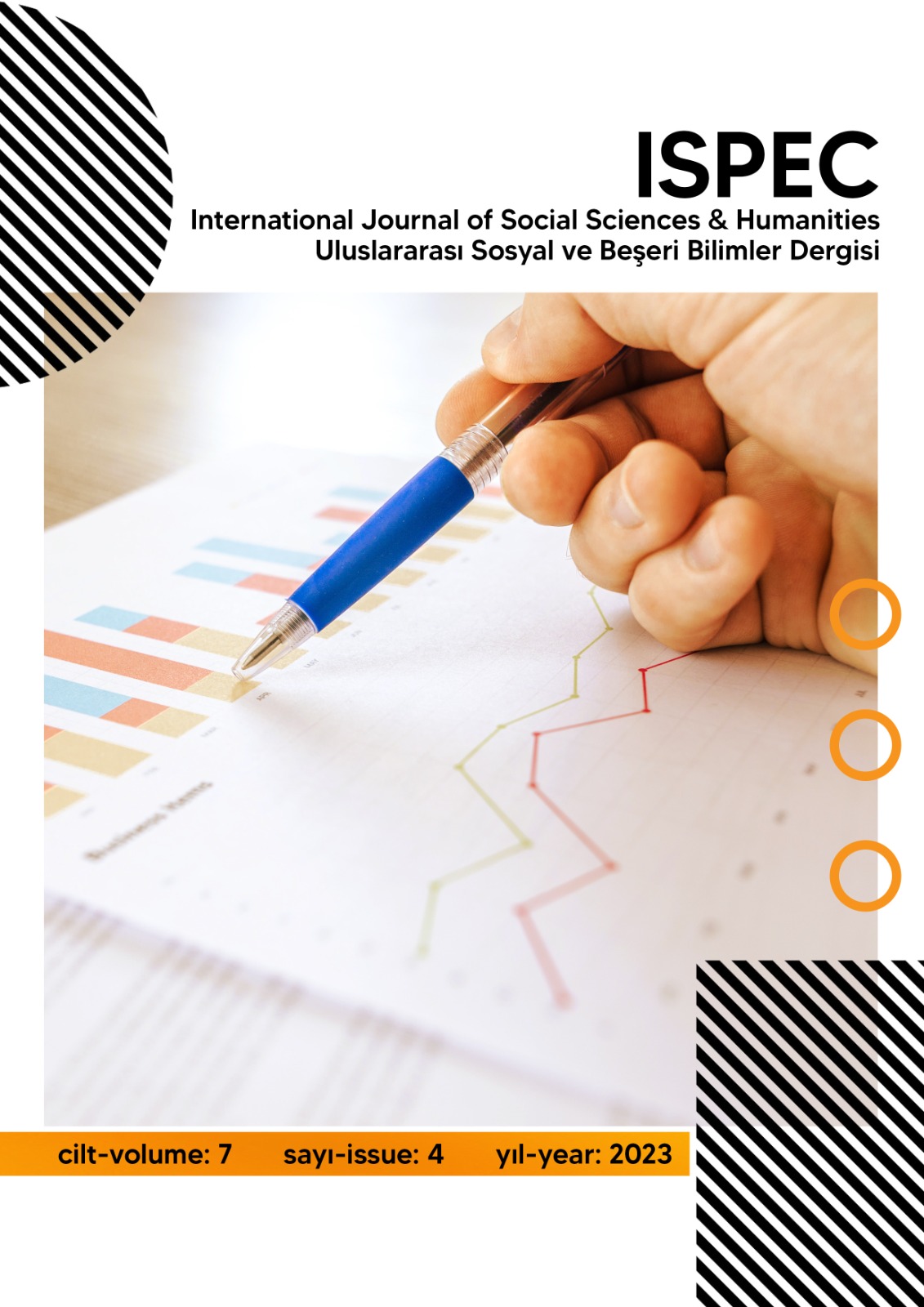A Systematic Review On Post Bipolar Disorder And Bdt Therapy
DOI:
https://doi.org/10.5281/zenodo.10436089Keywords:
bipolar disorder, bipolar disorder cognitive behavioral therapy, bipolar I, Bipolar IIAbstract
The aim of this review study is to examine the use of CBT therapy in individuals diagnosed with bipolar disorder. In this study, systematic review method was used and no field study or any scale was used. Turkish Dec English language and English language studies are between the years 2010-2023. These studies consist of pilot studies and research articles. February May 2023 and May 2023 This review study was carried out in two phases. As a result of the literature review, 6 studies were considered. As a result of these 6 studies, it has been seen that CBT is an effective and widespread method used in co-diagnoses, as well as being a method that increases compliance with the treatment process and drug therapy, facilitates early diagnosis and intervention. It has been found that compliance with drug therapy increases after CBT therapy is applied in individuals experiencing bipolar disorder, accelerates early diagnosis and interventions, and reduces stress. For this reason, CBT therapy is an effective and widespread method for the treatment of bipolar disorder. The increase in research on bipolar disorder in the world and in our country will reduce the risk of late and incorrect diagnosis, as well as ensure that the level of knowledge of individuals receiving a diagnosis on this topic is high, and the treatment process of patients progresses faster and healthier. In this way, patients with this disorder adapt more easily in their work and social lives, communicate more healthily with other individuals, and allow them to manage the treatment process they experience in the best possible way without isolating themselves from other individuals.
References
Aydoğdu, B. E.,& Dirik, G. (2020). MindfulnessBasedCognitiveTherapy in Bipolar Disorder. Psikiyatride GuncelYaklasimlar, 12(1), 16-31.
Deckersbach, T., Hölzel, B. K., Eisner, L. R., Stange, J. P., Peckham, A. D., Dougherty, D. D., ... & Nierenberg, A. A. (2012). Mindfulness‐based cognitive therapy for nonremitted patients with bipolar disorder. CNS neuroscience & therapeutics, 18(2), 133-141.Mindfulness‐basedcognitivetherapyfornonremittedpatientswith bipolar disorder. CNS neuroscience&therapeutics, 18(2), 133-141.
Howells, F. M., Ives-Deliperi, V. L., Horn, N. R., & Stein, D. J. (2012). Mindfulness based cognitive therapy improves frontal control in bipolar disorder: a pilot EEG study. BMC psychiatry, 12, 1-8.
Judd, L. L., Akiskal, H. S., Schettler, P. J., Coryell, W., Endicott, J., Maser, J. D., ... & Keller, M. B. (2003). A prospective investigation of the natural history of the long-term weekly symptomatic status of bipolar II disorder. Archives of general psychiatry, 60(3), 261-269.
Knutsson, J., Bäckström, B., Daukantaitė, D., & Lecerof, F. (2017). Adolescent and family‐focused cognitive–behavioural therapy for paediatric bipolar disorders: A case series. Clinical Psychology & Psychotherapy, 24(3), 589-617.
Lam, D. H., Bright, J., Jones, S., Hayward, P., Schuck, N., Chisholm, D., & Sham, P. (2000). Cognitive therapy for bipolar illness—a pilot study of relapse prevention. Cognitive therapy and research, 24, 503-520.
Maçkalı, Z., Tosun, A. (2011). Bipolar bozuklukta bilişsel davranışçı terapi. Psikiyatride Güncel Yaklaşımlar, 3(4), 571-594.
Maj, M., Akiskal, H. S., Lopez-Ibor, J. J., Sartorius, N. (Eds.). (2003). Bipolar disorder. John Wiley & Sons.
Miklowitz, D. J., Semple, R. J., Hauser, M., Elkun, D., Weintraub, M. J., Dimidjian, S. (2015). Mindfulness-based cognitive therapy for perinatal women with depression or bipolar spectrum disorder. Cognitive Therapy and Research, 39, 590-600.
Moher, D., Liberati, A., Tetzlaff, J., Altman, D. G., PRISMA Group*. (2009). Preferred reporting items for systematic reviews and meta-analyses: the PRISMA statement. Annals of internal medicine, 151(4), 264-269.
Montgomery, S., Cassano, G. B. (1996). Management of Bipolar Disorder: pocketbook. CRC Press.
Oral, T. (2002). İki uçlu bozukluk. WPA Serisi. İstanbul: CSA Medikal Yayın Ajansı. s, 441-503.
Öngider, N. (2014). Bilişsel davranışçı terapinin duygu durum ve anksiyete bozukluğu olan çocuk ve ergenlerde kullanımı: Bir gözden geçirme çalışması. Bilişsel Davranışçı Psikoterapi ve Araştırmalar Dergisi, 3(2), 73-83.
Reilly-Harrington, N. A.,Deckersbach, T., Knauz, R., Wu, Y., Tran, T., Eidelman, P., Nierenberg, A. A. (2007). Cognitivebehavioraltherapyforrapid-cycling bipolar disorder: a pilot study. Journal of PsychiatricPractice®, 13(5), 291-297.
Stange, J. P., Eisner, L. R., Hölzel, B. K., Peckham, A. D., Dougherty, D. D., Rauch, S. L., Deckersbach, T. (2011). Mindfulness-based cognitive therapy for bipolar disorder: effects on cognitive functioning. Journal of psychiatric practice, 17(6), 410.
Stratford, H. J., Cooper, M. J., Di Simplicio, M., Blackwell, S. E., & Holmes, E. A. (2015). Psychological therapy for anxiety in bipolar spectrum disorders: a systematic review. Clinical psychology review, 35, 19-34.
Türkçapar MH. Bilişsel terapi: temel ilkeler ve uygulamalar. HYB Basım Yayın; 2006
Weber, B., Sala, L., Gex-Fabry, M., Docteur, A., Gorwood, P., Cordera, P., Mirabel-Sarron, C. (2017). Self-reported long-term benefits of mindfulness-based cognitive therapy in patients with bipolar disorder. The journal of alternative and complementary medicine, 23(7), 534-540.
World Health Organization. (1993). The ICD-10 classification of mental and behavioural disorders: diagnostic criteria for research (Vol. 2). World Health Organization.
Downloads
Published
How to Cite
Issue
Section
License
Copyright (c) 2023 ISPEC International Journal of Social Sciences & Humanities

This work is licensed under a Creative Commons Attribution-NonCommercial-NoDerivatives 4.0 International License.






